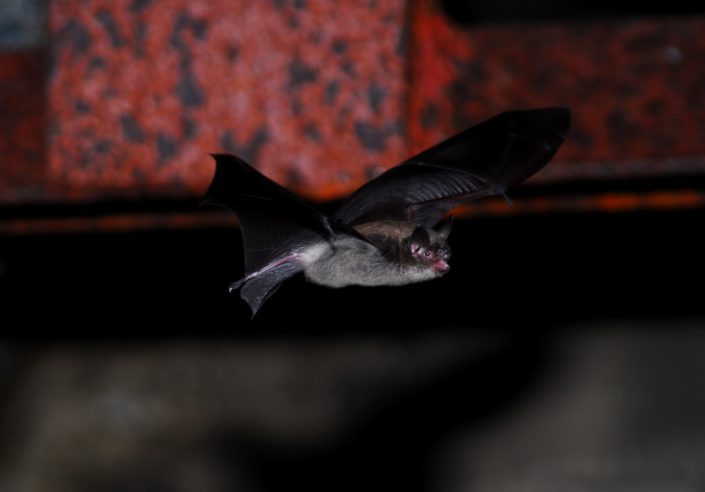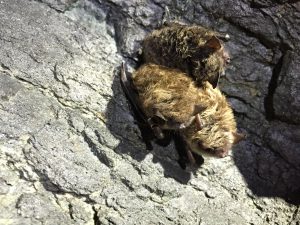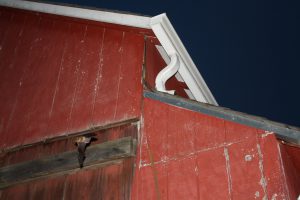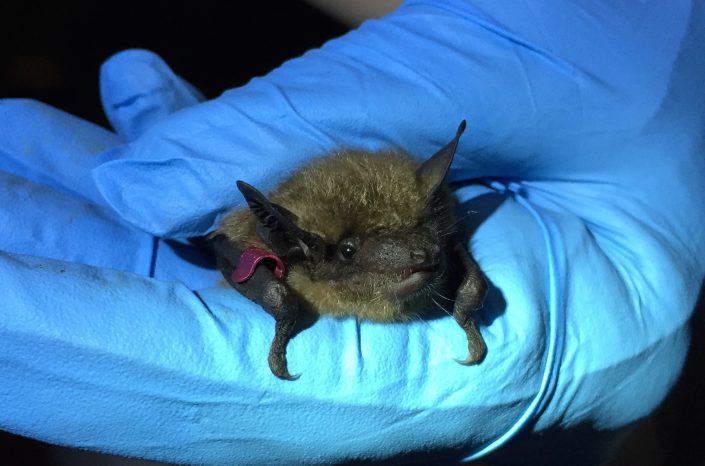Halloween Without Bats
By Stephanie Feigin, Wildlife Ecologist
This Halloween, while you are with friends and family celebrating a spooky evening of fun, I ask you to take a moment and think about one more thing – Halloween without bats. I want you to think about bats today not as the spooky creatures of the night that some people normally think of them as, but as incredible mammals that are invaluable to our ecosystem. In New Jersey, all of our 9 bat species are insectivores. They can eat thousands of insects in one night, protecting our crops and forests from insect destruction, and they pollinate many important foods that we love. A study published in Science magazine estimates that bats’ insect-eating services may be worth as much as $53 billion to US agriculture alone.

Despite the many environmental and economic benefits bats provide, bat populations around the world are still declining. Bats face many threats, including habitat loss and destruction, human persecution, wind energy development, and White-Nose Syndrome.

Devastatingly, we have lost over 6 million bats nationwide due to the spread of White Nose Syndrome (WNS) – a disease caused by a cold-loving fungus called Pseudogymnoascus destructans or Pd. It attacks hibernating bats, disturbing them during hibernation when the bats’ immune response is low, and prevents them from conserving enough stored energy to survive until spring. WNS also causes dehydration and unrest as well as severe wing damage that can prevent bats from flying. Much is still unknown about White-nose syndrome, its spread, and its consequences. The federal government, states, several universities, and organizations like ours are working hard to track and understand this disease.

In New Jersey, about 50,000 bats were killed by WNS in the first year (2009) – and we now estimate over 60 tons of mosquitoes and other night-flying insects go undevoured each year from loss of bats. Though bats are one of the most beneficial animals to humans they are still poorly understood and underappreciated, which is why today I ask you to think of them in a new light. Today, think about bats for all of the wonderful benefits they provide, think of them as amazing animals that work hard at night to protect our ecosystems, because we need to make a change.
To protect the bats we still have, it is important that people understand the stress these bats are under. It is important that we re-think how we view bats, remove the spooky stigmas that surround them and appreciate their importance to us. So today, think about bats think about how important they are, how badly we need to protect them and how scary a world without bats would be.

Stephanie Feigin is a wildlife ecologist for Conserve Wildlife Foundation.
LEARN MORE